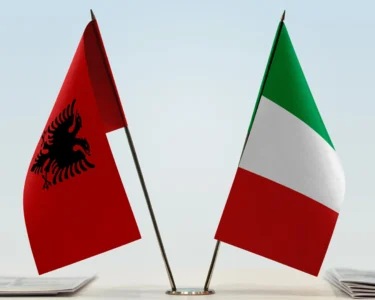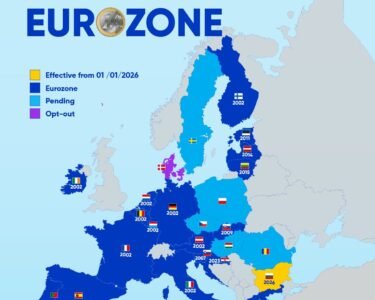Where will the upheaval of world balances initiated in just 30 days by President Trump lead? It is difficult to make predictions, partly because the White House strategy is not yet well defined and Trump is known to be an unpredictable character.
The U.S. president's first choices seem to point in these directions
1) Trump, like his predecessor Biden, considers China the number one adversary-if not outright enemy-and intends to counter its economic expansion and growing influence in various areas, starting with the Indo-Pacific
2) On the opposite side of Biden, Trump wants to reestablish close relations with Russia, is willing to gloss over Putin's responsibility in the aggression against Ukraine, is ready to concede much of its territorial claims to Moscow and prevent Kyiv from joining NATO.
3) The goal of this cordial understanding with Putin would be to detach Russia from China and thus isolate the Dragon.
4)Trump despises Europe . He sees it as a hostile power economically and wants to gradually disengage the United States from its traditional role as a military security guarantor for the Old Continent. In this direction go the decisions on tariffs and the exorbitant demand to raise defense spending to 5% of GDP to ease the U.S. financial commitment to NATO armaments.
Behind these White House orientations is the idea that the world could be governed by the three empires, American, Russian and Chinese. This world government could take place peacefully , dividing among the three empires, spheres of influence as was the case at Jalta in 1945 or adversarially, using economic force and threatening to use military force.
These are very hypothetical scenarios. We still do not know if, when and how Trump will strike a deal with Putin on Ukraine that is acceptable to Kyiv and the EU .Nor, so far, do we know what credible commitments Russia can make to ensure compliance with any agreement with Trump. Among other things, these scenarios ignore the existence of the European Union and emerging powers such as India.
But a first consideration is required. Underlying these White House orientations are two basic errors.
The first. If the U.S. wants to counter China's expansion and limit its economic power, the best way is to strengthen the Euro-American axis. Time and again I have argued that we should integrate the economies and markets of the two sides of the Atlantic Ocean as much as possible and create a 'single great economic-financial-technological fortress that shares the same ideals of freedom, democracy and free markets.
The U.S. produces 26% of world GDP. The European Union, with the United Kingdom, 19%. Together they would reach 45% and confine China to its 19%. This would be the most impassable embankment against Beijing and its race to become the first super-power by ousting the United States from the podium.
Instead, Trump wants to do the opposite: weaken relations with the European Union under the illusion that protectionism will strengthen America and enable it to wall itself off against Chinese economic and geopolitical growth.
The second mistake the White House makes is even more egregious than the first.
Trump plans to detach Russia from China perhaps by allowing Putin to resume his dream of returning to influence some Eastern European countries and threatening others. In reality, Russia is no longer in a position to do without China. Putin may promise Trump what the U.S. president likes to hear, but in fact Moscow cannot betray Beijing. Chinese retaliation would be devastating for Russia. Rather, in this scenario, Putin would try to keep his foot in both camps: take advantage of American acquiescence to expand as much as possible in Europe and in the meantime preserve the "perpetual friendship" relationship with Beijing.
As we can see, the risk to the United States would be enormous: it would deprive itself of traditional allies and end up strengthening the axis between China and Russia. World War III would be just around the corner.
In the hypothetical jigsaw puzzle of the three empires he would be playing with, Trump also forgets that the EU could be pushed by U.S. protectionism to seek more outlets in the Chinese market.And he also forgets that if the "free everyone" starts, no one forbids the EU from forging relations with the Brics thus offering these countries a solid shore to undermine the dominance of the dollar.
In short, the White House would do well to reflect on the long-term consequences of choices that to date seem wholly contrary to the goal of making America Great Again.





